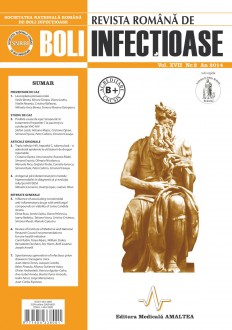SELECT ISSUE

Indexed

| |

|
|
|
| |
|
|
|

|
|
|
|
|
|
| |
|
|
HIGHLIGHTS
National Awards “Science and Research”
NEW! RJID has announced the annually National Award for "Science and Research" for the best scientific articles published throughout the year in the official journal.
Read the Recommendations for the Conduct, Reporting, Editing, and Publication of Scholarly work in Medical Journals.
The published medical research literature is a global public good. Medical journal editors have a social responsibility to promote global health by publishing, whenever possible, research that furthers health worldwide.
Spontaneous Generation of Infectious Prion Disease in Transgenic Mice
Juan-Maria Torres, Joaquin Castilla, Belen Pintado, Alfonso Gutierrez-Adan, Olivier Andreoletti, Patricia Aguilar-Calvo, Ana-Isabel Arroba, Beatriz Parra-Arrondo, Isidro Ferrer, Jorge Manzanares and Juan-Carlos Espinosa
We generated transgenic mice expressing bovine cellular prion protein (PrPc) with a leucine substitution at codon 113 (113L). This protein is homologous to human protein with mutation 102L, and its genetic link with Gerstmann–Sträussler–Scheinker syndrome has been established. This mutation in bovine PrPc causes a fully penetrant, lethal, spongiform encephalopathy. This genetic disease was transmitted by intracerebral inoculation of brain homogenate from ill mice expressing mutant bovine PrP to mice expressing wild-type bovine PrP, which indicated de novo generation of infectious poisons. Our findings demonstrate that a single amino acid change in the PrP sequence can induce spontaneous generation of an infectious prion disease that differs from all others identified in hosts expressing the same PrPc sequence. These observations support the view that a variety of infectious prion strains might spontaneously emerge in hosts displaying random genetic PrPc mutations.
